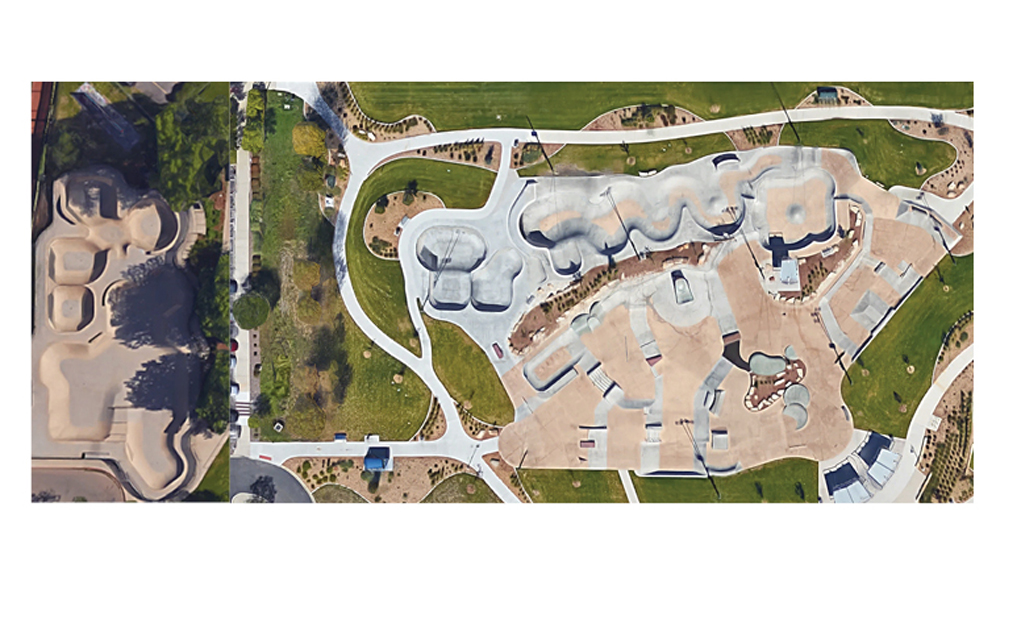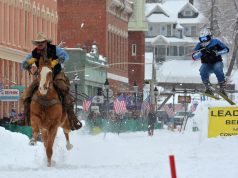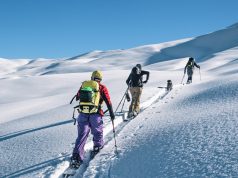
Josh Agenbroad has found his own way to meet people wherever he goes, from Albuquerque, New Mexico, where he grew up, to Beijing, China, and many different parts of Colorado. However, it wasn’t until he moved to Boulder that his almost foolproof method failed him.
“All these places that I’ve moved to, I basically went to the skate park and met people and that would be my first set of friends, and that’s how I got to know people and got integrated into the community, but in Boulder that just didn’t happen,” Agenbroad says.
When Agenbroad initially moved to Boulder in the summer of 2014, the skate park at Scott Carpenter Park threw him off. After hearing great things about the skate scene in town, he was surprised to see the park relatively empty. Hearing of skateboarders leaving Boulder to skate newer parks in Lafayette and Arvada, he became eager to help the community.
“I went to the skate shop and was like, ‘Somebody’s got to be working on this — who’s working on it? Is there any way I can help out?’” he explains.
That’s when Agenbroad took it into his own hands, and he has since been gathering support and building a plan. Still in preliminary stages, the campaign for a new Boulder skate park has been an effective way for him to interact with the town’s skateboarders and the Boulder community at large.
The skate park at Scott Carpenter Park was built in 1999 and was one of the first skate parks on the Front Range, setting up a solid skate scene. And it was innovative, being one of the first all-concrete parks of its time. Now Boulder has two skate shops to service the many talented boarders who live in town. The only issue is that as the sport grew, Boulder’s facility for it didn’t. Instead, surrounding towns like Lafayette, Arvada and Erie have all incorporated numerous new, well-designed parks that draw skaters looking for variety away from Boulder.

So Agenbroad started a campaign to build a new skate park in Boulder. He launched an online petition Dec. 3, 2015 with a goal of getting 1,000 signatures. There are currently more than 550 signatures.
From Agenbroad’s own survey that ran on the campaign’s website, he found 55 percent of respondents are driving to other parks along the Front Range more often than skating in town.
“I think that’s pretty significant, seeing as though you’ve got to drive 20 minutes at least to get to somewhere else,” he says.
Agenbroad is in early discussions with members from Boulder’s Parks and Recreation department, Parks and Recreation Advisory Board (PRAB) and PLAY Boulder Foundation about what space there is in town for a new skate park and what fundraising is available. He has also been speaking with the skateboarders of the community to figure out what type of design would be best for Boulder.

As for the current skate park at Scott Carpenter Park, there seems to be a general consensus among the town’s skateboarders: the facility could use an update. The park has sustained damage, such as cracks and potholes in the pavement, and also lacks obstacles for newer skaters as well as places for parents to watch from. Since the park’s creation, there has been a movement toward more “street style” features (think stairs and rails), as well as a huge boom in the age range of skateboarders.
Raul Pinto, a skateboarder and one of the owners at Boulder’s Satellite Boardshop, says the city should focus on both options.
“I think it’s time for a couple other locations in the town to be selected, as well as updating the current skate park, doing some repairs, maybe doing some other things simply to the park so that parents feel like they can drop their kids off,” Pinto says. “The number one thing that I hear about from parents is they drive their kids to these other townships to let them skate.”
A lack of features for new and learning skaters is a concern for many parents who want to take their kids to the skate park at Scott Carpenter. Skateboarding requires huge amounts of practice, and becomes difficult to learn without access to the right features. Heather Smith’s sons Buddy and Tyler are 8 and 10 years old respectively and avid skateboarders; however, they prefer to travel to Lafayette or Louisville to skate.
“They’re a little intimidated at Scott Carpenter,” Smith says of her boys. “We do have an awesome park that great skateboarders want to skate at, but that’s where our youngest should absolutely be able to learn as well.”
The skateboarding community has given its support to Agenbroad’s cause. On Sunday, March 12, Meta Skateboards held “Artsy Fartsy,” an art show to benefit the skate park campaign. Featuring local artists, the show was a first step in getting the word out. Skateboarding has always had ties with the art community, as both are methods of individual expression. Skateboarding is also a sport for everyone, no matter the socio-economic background. In a diverse community, this can help bring people together.
There are a lot of possibilities when building a new park, which is why Agenbroad is not only working with skateboarders in town to understand what is wanted, but also with Parks and Recreation to figure out what is possible and what funding is needed. Jeff Haley is the Parks and Recreation planning, design and community engagement manager and one of the first people Agenbroad spoke with.
“On the City side, we recognize that the skate park at Scott Carpenter Park is old and outdated, and there are many other communities that have newer and more enhanced skate parks,” Haley says. “So I explained to Josh (Agenbroad) that currently we don’t have any designated funding; there’s no plans to repair or replace the skate park. However, we are starting a planning process for Scott Carpenter Park to look at redesigning the park, specifically the pool and that area. So we would definitely enjoy the opportunity to look at the skate park and have that be a part of the design process.”
Funding is one of the largest difficulties with Parks and Recreation projects, so those wishing to complete projects must look for funding from the larger community. PLAY Boulder Foundation was founded in 1976 for just this purpose — to act as a partner to the Parks and Recreation Department and help find funding for community projects. Kelly Wyatt is the current president of PLAY Boulder as well as a PRAB member.
“It all sounds exciting,” Wyatt says. “Josh has done a really good job of doing his due diligence and talking to the right people in the Parks Department and attending a couple Parks Board meetings and researching other cities and the best approaches.”
The national average cost for a skate park is just above $250,000. The biggest skate park in Arvada opened June 2012 and exceeds 40,000 square feet. At $2.1 million, it is one of the town’s four skate parks and is almost three times larger than Boulder’s only skate park. Agenbroad doesn’t think Boulder needs anywhere near what has been done in Arvada, but instead believes a lot can be done with any amount of available space. Between updating the skate park at Scott Carpenter Park and establishing what many call “pocket parks” in different neighborhoods, Boulder can find a unique way to update its skate facilities.

“The main constraint in Boulder is there’s just not any room, but there’s a lot of pockets you could stick things in,” Agenbroad says.
Agenbroad came to Boulder and saw a strong skateboarding community lacking organization. After realizing there was nobody leading the way, he’s taken the responsibility upon himself and is engaging the community in a way similar to how he had previously hoped.
“It’s been a really good way for me to actually do the same thing I wanted to in the first place,” Agenbroad says, “which is meet people and have people to skate with.”














